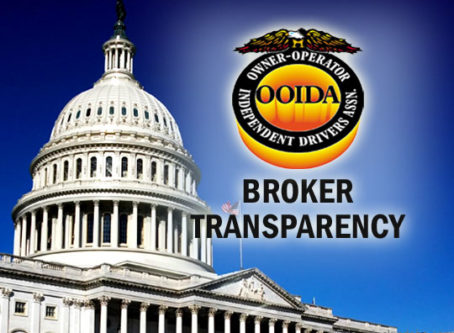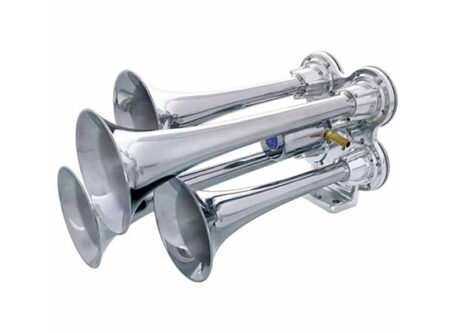Towing company ordered to pay back ‘excessive and unfair’ admin fees
An insurance company scored a partial victory in a Massachusetts court in a lawsuit dealing with predatory towing against both passenger and commercial vehicles.
In November, a judge for a Massachusetts state superior court ordered East Freetown, Mass.-based Big Wheel Truck Sales to pay Webster, Mass.-based Commerce Insurance more than $24,000 for towing charges the insurance company paid for several of its customers. The court ruled that the towing company’s administrative fees were “unfair or deceptive.”
In its complaint, Commerce Insurance highlighted 16 different customer claims for towing services. In all of the claims, the customer was involved in a motor vehicle crash. According to the court order, Big Wheel Truck Sales has contracts or agreements with the Massachusetts State Police to be on its rotational tow list to respond to motor vehicle crashes. The company is also on rotational tow lists with various municipalities.
In all 16 claims, Commerce Insurance disputed the charges with Big Wheel Truck Sales. However, the insurance company ended up paying the tow truck company “under protest,” as the customers’ vehicles were being held “hostage.” With storage fees piling up each day, the insurance company had to avoid even more charges to the bill. Towing bills ranged from more than $5,000 to more than $91,000.
‘Excessive and unfair’ administrative fees
Among Commerce Insurance’s arguments was that Big Wheel Truck Sales charged an excessive administrative fee.
In all but two claims, a 10% administrative fee was charged. In total, more than $24,000 in administrative fees was charged for the claims in question.
During the trial, the towing company claimed the following tasks are considered administrative fees:
- Detailed digital photography of the crash scene
- Downloading photographs
- Gathering information from the supervisor and recovery crew on scene
- Preparing detailed narratives from information gathered from the supervisor and recovery crew on scene
- Itemizing equipment used on the crash scene
- Providing information gathered to billing personnel for proper preparation of invoice
- Interacting with the owner of vehicle at the tow yard
- Escorting persons to view the vehicle or retrieve belongings
- Interacting with insurance appraisers and representatives
- Faxing and emailing recovery invoices and photographs
Addressing taking photographs, the court ruled that there is no need for an additional fee because the person taking the photographs is already billing for their time at the scene. Regarding the other tasks, the court states that most of them “would generally take a matter of minutes.”
While disputing the claims, Big Wheel Truck Sales did not specify which administrative tasks were associated with each recovery. Even if it had, the court ruled, “the amounts were grossly excessive and unfair.”
“The court finds that these administrative fees have no relationships to the amount of time spent on administrative tasks by Big Wheel and are arbitrary and grossly excessive,” the court ruled. “Further, Big Wheel greatly overstates the typical time it takes to perform each of these tasks. There is no benefit to either the owner or an insurance company in charging for these minor administrative tasks. Rather, it is simply a way to add 10% to their bill, and insurers are put in the difficult position of taking the time to contest this ‘unregulated charge’ versus being charged additional daily storage rates.”
The court ordered Big Wheel Truck Sales to pay Commerce Insurance more than $24,000, the total cost of administrative fees charged in all 16 claims. However, it was only a partial victory for the insurance company.
In its complaint, Commerce Insurance sought more than $110,000 in damages. The insurance company made several other claims regarding predatory billing from Big Wheel Truck Sales. The towing company managed to escape those allegations despite the court expressing skepticism over the practices.
Overcharges related to unnecessary equipment
Commerce Insurance argued that Big Wheel Truck Sales charged for unnecessarily expensive equipment.
Towing heavy-duty trucks is not cheap. A heavy-duty tow truck costs anywhere from $600,000 to $850,000, according to court documents.
Commerce Insurance claims that Big Wheel Truck Sales would unnecessarily send out one or more heavy-duty tow trucks when a smaller, less expensive piece of equipment would have sufficed. The insurance company argues that the towing company did this to charge exorbitant prices to pay for the expensive equipment.
Court documents reveal that Big Wheel Truck Sales owned several heavy-duty tow trucks. However, that equipment was rarely used. In her order, Judge Valerie A. Yarashus said it was “difficult to understand” why the tow truck company has so many expensive tow trucks. She went on to say it supports Commerce Insurance’s claim that the tow truck company was motivated to overcharge customers in order to pay for unnecessarily high overhead.
However, Yarashus ultimately ruled that there was not enough evidence to support claims regarding overcharging for unnecessary equipment.
“The potential overuse of expensive (heavy-duty tow trucks) did indeed appear to the court to be questionable in most of the individual cases involved,” the court order states. “However, in the absence of credible expert testimony, the court is unable to make any findings on this practice, consistent with the burden of proof and the conduct required in order to find a violation (of state law).”
Billing methods
The insurance company also pointed out that the towing company was inconsistent with how it charged customers.
According to court documents, Big Wheel Truck Sales would charge four-hour minimums with respect to certain equipment. In other cases, customers were charged flat rates. However, in other instances, customers were charged “portal to portal.” Other customers would be charged from the time equipment (such as airbags) went into service until the time it was cleaned back at the tow yard.
Furthermore, Big Wheel Truck Sales did not indicate what time it received a call to recover a vehicle or what time its vehicles returned to the yard. In the court order, the towing company’s billing methodology was considered “inconsistent” and “difficult to decipher.”
However, the court ruled it would not make any findings that the billing practices violated state law due to a lack of credible expert testimony. LL
Related stories:









